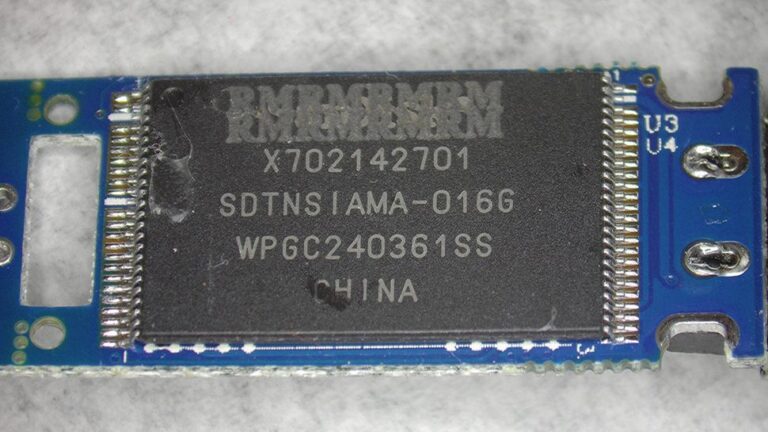CBL Data Recovery has identified a worrying trend in data recovery requests that indicates the quality of new memory chips used in microSD cards and USB flash drives is decreasing.
The German company says the most serious problem lies with off-brand products, which are becoming increasingly unreliable.
In CBL’s data recovery lab, USB sticks with NAND chip manufacturers’ logos removed are frequently seen, and chips that have failed quality control tests from major manufacturers such as SanDisk and Samsung have reduced memory capacity specifications. It is suggested that it is being resold.
What can you do?
“Last year, when we opened defective USB drives, we found an alarming number of inferior memory chips with reduced capacity and manufacturer logos removed from the chips. We also found microSD cards that had apparently been discarded and were unrecognizable. It is soldered onto a USB stick and managed by an external card on the USB stick board rather than by the microSD’s internal controller,” explains Conrad Heinicke, Managing Director of CBL Datenrettung GmbH.
“Most of these USB sticks of questionable quality were promotional items, but some were branded products. You should not be overconfident in the reliability of flash memory. It also takes into account that NAND chips are becoming increasingly vulnerable.”
Increasing storage density reduces write ability (durability) and storage capacity (retention), increasing the risk that differences in charge read as bits will become unreadable due to aging of the insulating layer that holds these charges. I am. This problem becomes more pronounced as storage density increases.
“Even when using high-quality memory chips, the amount of effort that manufacturers have to put into error correction mechanisms within controllers is enormous. It’s surprising that data loss occurs on USB sticks containing obsolete chips. “Flash memory is practical, but you have to be aware that data can be lost, for example when stored for long periods of time,” adds Heinicke.
To avoid data loss when using USB flash drives or microSD cards, CBL Data Recovery has some suggestions.
- If you frequently write and delete data on USB sticks, you may need to use multiple sticks in sequence. Flash memory chips can only provide a limited number of erase cycles.
- Avoid using small USB flash drives. The force applied during insertion often directly affects the tip. Additionally, these compact models tend to dissipate less heat than larger, more rugged models.
- As a general rule, always select the “Safely Remove” or “Eject” option and wait for confirmation from the operating system before removing a data storage device.


